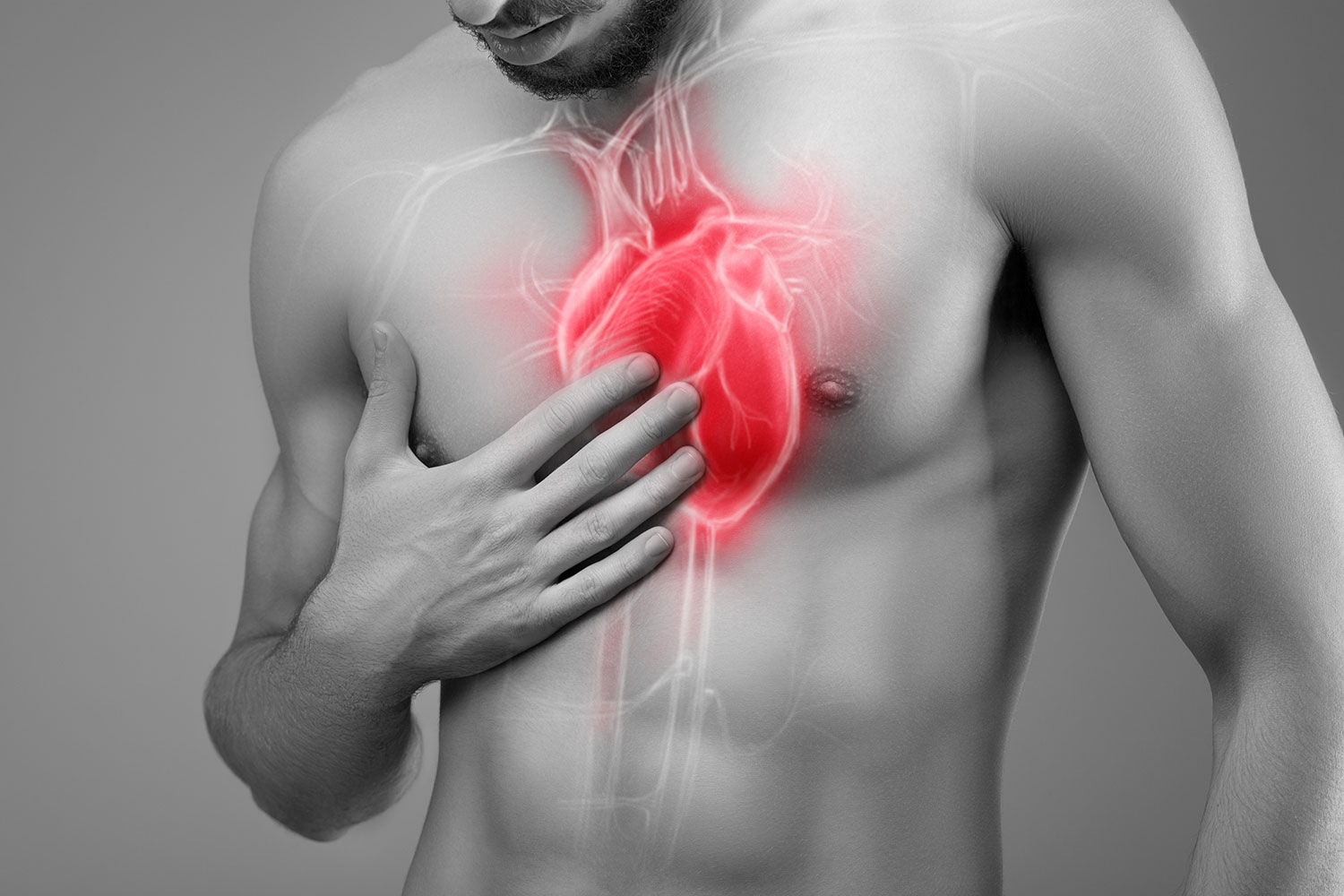Why Cardiology is more than just heart disease treatment
Why Cardiology is more than just heart disease treatment
Blog Article
Understanding the Relevance of Cardiology in Modern Healthcare Providers
Cardiology plays an essential function in contemporary medical care, specifically as cardiovascular disease remains to be the leading reason for mortality worldwide. Breakthroughs in diagnostics and therapy have actually changed patient care, making it possible for earlier treatments and boosted results. The shift towards precautionary cardiology equips people to manage their health and wellness proactively. As modern technology continues to progress, the combination of cutting-edge solutions may additionally redefine cardiology's effect on public wellness, prompting a more detailed assessment of emerging fads and their effects.
The Prevalence of Cardiovascular Disease and Its Effect on Public Wellness
Although heart problem continues to be the leading cause of death internationally, its influence prolongs far past individual clients to affect public wellness systems and economic situations. The high prevalence of cardiovascular disease places a significant strain on medical care sources, necessitating raised financing for rehabilitation, treatment, and avoidance programs. Public wellness initiatives should resolve risk elements such as excessive weight, cigarette smoking, and sedentary way of lives, which add considerably to the increasing incidence of heart conditions.Moreover, the economic problem linked with cardiovascular disease is immense, encompassing not just direct medical prices however additionally indirect expenses connected to lost productivity and premature death. Areas face challenges in handling these costs, usually leading to variations in health care access and outcomes. As the populace ages and lifestyle-related threats continue to rise, the seriousness for efficient cardiology treatments comes to be extremely important. Subsequently, attending to cardiovascular disease is not just an issue of private wellness yet additionally a critical public health and wellness concern.
Breakthroughs in Heart Diagnostics and Imaging Techniques
Current innovations in heart diagnostics and imaging strategies have transformed the field of cardiology, enhancing the capacity to keep an eye on and discover heart illness. Techniques such as heart MRI, CT angiography, and echocardiography have actually become increasingly advanced, supplying comprehensive images of heart frameworks and functions. These methods enable the early identification of problems like coronary artery illness, cardiac arrest, and valvular disorders.Moreover, advancements in non-invasive diagnostics, such as wearable modern technology and remote tracking devices, have actually encouraged clients and doctor. These devices help with real-time monitoring of heart rhythms and various other vital indicators, bring about timely treatments. Furthermore, expert system is being incorporated into imaging evaluation, improving precision and efficiency in medical diagnosis.
Developments in Therapy Options for Heart Issues
Recent innovations in cardiology have caused significant advancements in therapy alternatives for heart disease. These consist of advanced medical strategies that enhance step-by-step end results and emerging medications that use brand-new avenues for therapy. As the area advances, these developments play a crucial function in boosting patient care and results.
Advanced Surgical Techniques
Technologies in surgical methods have actually transformed the landscape of cardiology, providing brand-new wish for people with heart conditions. Minimally invasive procedures, such as catheter-based treatments, have substantially reduced healing times and health center keeps. Techniques like robotic-assisted surgery enhance precision, permitting cosmetic surgeons to navigate complex anatomical structures with higher accuracy. Additionally, developments in imaging innovation help with real-time visualization during treatments, improving outcomes. Transcatheter aortic valve substitute (TAVR) exemplifies an advancement in dealing with aortic stenosis, allowing shutoff substitute without open-heart surgical procedure. In addition, hybrid strategies that integrate medical and catheter-based methods give tailored services for different cardiac issues. These advanced medical methods not only enhance person safety and security however also expand therapy choices, emphasizing the critical duty of advancement in contemporary cardiology practices.
Arising Medicines and Therapies
As the landscape of cardiology proceeds to progress, emerging drugs and therapies play a pivotal role in enhancing therapy options for heart problems. Advancements such as novel anticoagulants and progressed lipid-lowering agents have actually changed the administration of heart diseases, significantly reducing individual morbidity and mortality. Furthermore, the development of gene treatments and regenerative medicine uses promising opportunities for dealing with conditions formerly regarded irreversible. Professional trials are consistently revealing the effectiveness of these treatments, pushing the limits of standard treatments. The combination of electronic wellness technologies helps with tailored medication, allowing for tailored therapy strategies based on genetic and lifestyle elements. Collectively, these developments highlight the dynamic nature of cardiology, improving patient results and redefining requirements of treatment in modern medical care.
The Role of Preventive Cardiology in Individual Treatment
Preventative cardiology plays a vital function in person treatment by concentrating on the recognition of risk factors that contribute to heart disease. Through lifestyle alteration methods and very early detection methods, medical care providers can efficiently decrease the incidence of cardiovascular occasions - Cardiology care. This positive method not only improves patient end results yet likewise promotes long-term health
Threat Variable Identification
While heart diseases stay a leading source of morbidity and mortality worldwide, reliable threat element identification acts as a keystone of preventive cardiology. Recognizing danger elements such as hypertension, household, hyperlipidemia, and diabetes background is vital for early treatment. Health care professionals use various evaluating approaches to examine these elements, enabling customized preventive measures. Furthermore, understanding a patient's way of life options, such as smoking cigarettes and physical lack of exercise, better notifies risk evaluations. This complete analysis allows clinicians to establish customized treatment strategies focused on mitigating threats. By prioritizing danger variable identification, health care systems can boost client results and lower the overall concern of heart diseases, her explanation eventually adding to boosted public health methods and source allocation.
Way Of Living Modification Methods
A plethora of studies highlights the vital duty of way of living modification techniques in decreasing heart disease threat. These strategies encompass dietary changes, enhanced physical activity, smoking cigarettes cessation, and weight administration. By embracing a heart-healthy diet regimen abundant in fruits, veggies, entire grains, and lean healthy proteins, people can decrease cholesterol degrees and high blood pressure. Normal exercise reinforces the heart and boosts total cardio wellness. Furthermore, quitting smoking significantly decreases the danger of heart illness and enhances recovery prices for those with status quo. Weight monitoring additionally adds to cardiovascular health by mitigating various other threat aspects such as diabetes mellitus and high blood pressure. Executing these lifestyle changes not just promotes individual health however additionally acts as a cornerstone of preventative cardiology in person care.
Early Discovery Methods
Way of living modifications greatly add to reducing cardiovascular disease risks, but they are most effective when coupled with very early discovery strategies. Preventative cardiology highlights the significance of recognizing potential heart concerns before they escalate right into severe conditions. Strategies such as blood pressure monitoring, cholesterol testing, and progressed imaging innovations like echocardiograms play important functions in evaluating cardio health. Biomarkers and hereditary screening likewise boost the precision of very early discovery, enabling customized preventive methods. Regular cardiac threat assessments equip medical care suppliers to intervene proactively, potentially protecting against cardiac arrest and strokes (Cardiology Jupiter). By incorporating these very early detection approaches into regular treatment, patients can benefit from prompt way of living interventions and targeted treatments, eventually boosting and boosting outcomes lifestyle
Integrating Innovation Into Cardiology Practices
As advancements in innovation remain to reshape different areas, the assimilation of innovative tools and systems into cardiology methods has actually become vital for boosting person treatment and end results. Telemedicine platforms permit cardiologists to monitor patients remotely, improving access to care while decreasing the concern on health care facilities. Wearable gadgets, such as smartwatches, allow continuous heart rate monitoring, notifying both clients and doctors to potential issues in real-time. In addition, expert system (AI) is being made use of to assess huge amounts of cardiac data, aiding in very early diagnosis and customized treatment strategies. Advanced imaging strategies, including 3D echocardiography, enhance visualization of heart structures, leading to extra accurate interventions. Digital wellness records (EHRs) streamline patient details administration, guaranteeing that cardiologists have immediate access to important data. With each other, these technical innovations are changing cardiology, promoting proactive administration and improved wellness outcomes for individuals with cardiovascular problems.
The Significance of Patient Education And Learning and Interaction
Patient education and involvement play a critical duty in the management of cardio health. By furnishing patients with understanding concerning their conditions, treatment alternatives, and lifestyle modifications, medical care suppliers encourage individuals to take an active duty in their treatment. This proactive method can bring about improved adherence to recommended medications, dietary changes, and workout programs, inevitably minimizing the danger of complications.Engagement additionally promotes a solid patient-provider partnership, motivating open interaction and depend on. When individuals really feel educated and entailed, they are most likely to voice issues and ask concerns, which can bring about far better professional end results. Additionally, educational resources, such as workshops or digital platforms, can enhance try this understanding and promote self-management strategies. In general, prioritizing individual education and interaction is essential for enhancing cardio wellness, boosting lifestyle, and lowering medical care prices linked with cardio illness.
Future Patterns in Cardiology and Their Prospective Impact

Frequently Asked Concerns
What Way Of Living Adjustments Can Minimize Heart Problem Threat?
The existing inquiry addresses lifestyle modifications that can considerably decrease heart problem risk. Cardiology care. Adopting a well balanced diet regimen, engaging in regular physical activity, maintaining a healthy and balanced weight, managing tension, and staying clear of cigarette can notably improve cardio health and wellness
How Can I Identify Early Indicators of Heart Issues?
Identifying early indicators of heart issues involves tracking symptoms such as breast discomfort, shortness of breath, exhaustion, and irregular heart beat. Timely understanding of these indicators can trigger necessary medical click evaluation and treatment for better outcomes.
What Are the Distinctions Between Cardiologists and Cardiac Surgeons?
The distinctions between cardiologists and cardiac surgeons lie in their duties; cardiologists mainly identify and take care of heart problems through non-invasive techniques, while heart surgeons do surgeries to fix architectural heart issues. Each plays a crucial, distinctive role.

Just how Usually Should I Obtain My Heart Wellness Checked?
The regularity of heart medical examination varies based on specific danger factors. Generally, grownups must undergo analyses each to 2 years, while those with current conditions might need even more regular assessments as suggested by health care professionals.
What Duty Does Genetics Play in Cardiovascular Disease Danger?
Genes considerably influences heart condition danger, with domestic patterns suggesting acquired conditions. Details genes can incline individuals to high blood pressure, cholesterol concerns, and other cardio problems, highlighting the significance of genetic testing in reviewing heart wellness. Heart disease continues to be the leading cause of fatality worldwide, its influence extends much past individual people to affect public health systems and economic situations. Public health and wellness campaigns should resolve risk aspects such as excessive weight, cigarette smoking, and less active way of lives, which add greatly to the increasing incidence of heart conditions.Moreover, the economic concern linked with heart disease is enormous, including not just straight medical expenses however additionally indirect expenses associated to shed performance and premature mortality. Preventative cardiology plays an essential function in person treatment by focusing on the identification of risk elements that add to heart condition. Artificial intelligence (AI) and device understanding are boosting diagnostics and person monitoring, enabling early detection of heart diseases. The differences between cardiologists and cardiac specialists exist in their duties; cardiologists largely identify and take care of heart problems via non-invasive approaches, while heart doctors execute medical treatments to remedy architectural heart problems.
Report this page